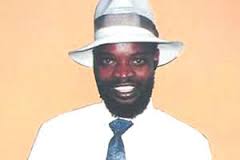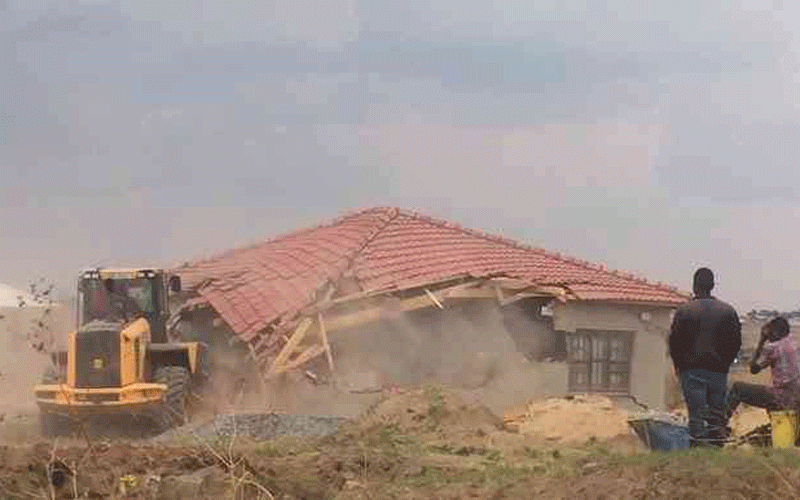
So, you think that the harassment of musicians is a new phenomenon? If you do, you are wrong. The old saying that “history repeats itself” is still alive.
By Fred Zindi
Harassment of local musicians by their fans did not start with Zimdancehall or with Jah Prayzah and Andy Muridzo, as many people tend to think.
When I played in a band, the first thing I learned to do was to find ways of destroying hecklers. If any fans gave us trouble, we would look for jokes that would get everyone in the crowd laughing at them, but we never lost our cool. We would set the crowd against them and it always worked. After all, we had the microphone, the hecklers did not.
Way back in 1990, Thomas Mapfumo came to the University of Zimbabwe to give a performance. During his performance a few drunk and excited students harassed him while he was on stage. They jumped onto the stage and started pulling his dreadlocks while others climbed on top of his public address speakers and began dancing from there. One drunk student even went further to the extent of peeing on the speakers while everyone was watching. The rest of the crowd, who were mainly male, on seeing this were shouting, “UBA Ahoy! UBA Ahoy!” Mapfumo was heavily shaken by this. After the performance, he said to me, “Fred, even if you offered me $1 million, I will never come back to perform for these hooligans!”.
I advised him that all he needed to do was tell the rest of the crowd that if they wanted him to continue to entertain them, they should stop those hooligans. That would have worked.
But that is a digression. The case in point is that a month later, Leonard Dembo had a function at the University of Zimbabwe’s Students’ Union Cafeteria in 1992 just after he had released his monster hit, Chitekete. He came with his band, Barura Express and they performed from 9pm until midnight. Halfway through the performance, Dembo decided to take a break to go to the toilet. About a dozen drunk students (who called themselves UBAs or MaUBA) followed him to the toilet and started to harass him. “We have paid our money and you decide to leave the stage? Why did you stop? You can sing for us now in this toilet,” they demanded.
Dembo politely replied that he would soon go back on stage once he had finished relieving himself. Besides, he said, “I cannot sing here in the toilet without my band.”
- Chamisa under fire over US$120K donation
- Mavhunga puts DeMbare into Chibuku quarterfinals
- Pension funds bet on Cabora Bassa oilfields
- Councils defy govt fire tender directive
Keep Reading
The UBAs would not take it. They started heckling him and at the same time screaming, “You can sing for us here in the toilet without your band. Sing Chitekete now sing! sing! sing! UBA Ahoy!”
This is when I walked into the toilet and discovered what was going on. One of the students recognised me and told the others to stop. Dembo was fortunate that I came to his rescue in time as some had started pulling his shirt by the collar while others were trying to pull down his trousers. I pulled Dembo to one side and told these UBAs (some university girls told me that the acronym UBA means Unable to Buy Anything) to behave themselves. This was my address to them; “This gentleman has committed no crime. Why are you harassing him? Like any human being, he also gets tired, and like you, he also answers to the call of nature. So let him be. After all, he has come to this university to entertain you.” They obliged.
Leonard was soon back on stage.
After the concert, Dembo thanked me for rescuing him. The next day all the hostels, especially the female hostels, from Swinton to Carr-Saunders, had ghetto blasters blurring with Chitekete.
It took a lot of persuasion for Dembo to allow me to get an interview from him. He did not want any publicity. Despite the many hits that he had made, he still remained very shy. I reminded him about how I had rescued him from the University of Zimbabwe hooligans and I think that was the reason he eventually agreed to do the interview. I quickly took out my diary to jot down this scoop. I still have the notes dated December 4 1993:
“I was born Leonard Tazvivinga Dembomavara in 1959 in a poor family in Chirumanzi, Midlands. By the time I started primary education in Buhera, I was already good at guitar-playing at the age of seven. However, I never thought that I would make it big one day,” he said.
“I left Buhera for Bulawayo where I continued with primary education up to Grade Seven. After seven years of primary education, I then attended Chembira Secondary School in Harare. However, my family could not afford the cost of secondary education and I had to leave school before completing form four.
“I then started searching for employment. The search took me to Bulawayo, but after pounding the streets of Bulawayo for months without any success, I finally decided that my future lay in music.
“While in Bulawayo, in 1979 I met an excellent guitarist called Cosmas Nyathi. With the encouragement of Cosmas, I took to music, probably the best decision I made in my life. The biggest change in my life occurred in 1980 when I decided to return to Harare. While in the capital, I teamed up with four other guys and we tried unsuccessfully to record a song.
“Armed with the necessary skills and self-confidence, I joined the Outsiders Band in 1982 and immediately took the music scene by storm. I made headlines with my first single Venenzia, which not only went gold but also stayed on the number one spot on the charts for six months. The release of another hit Dambudzo and Amalume established me as a force to reckon with on the music scene. This is when my troubles with the fans began. I was asked by music fans to play in remote villages, some of which had no electricity and we had to improvise with generators just to give them a show. One day the generator ran out of diesel and the fans wanted re-funds which we did not give back and we were pelted with stones. I had to hide in one of the villager’s home but never went back to that village again.
“In 1984 I left the Outsiders Band and formed Barura Express and it is with this group that I recorded all my six albums, Chitekete, Shiri Yakangwara, Kukura Hakutane, Nhamo Moto, Ruva Rashe and Kukura Kwedu. All my songs like Venenzia, Dudzai, Chitekete, Sharai, Murombo, Nhamo, Kuziva Mbuya Huudzwa and Manager stayed on the number one spot in the charts for a number of weeks.
“My best known album was Chitekete, which went gold. It was released in 1991 and sold more than 100 000 copies and I received a triple platinum disc award in February 1992 at Gramma Records Gold Disc Awards together with a double gold disc for the album Ruva Rashe.”
Members of Barura Express included Alexander Muudzwa, Chrispen Zimburu, Cosmas Nyathi, Kidson Madzorera, Shepherd Akimu and Innocent Mjindu.
Dembo was a humble man who earned the respect and admiration of everyone. Despite the high sales of his recordings, Dembo was not interested in publicity. He refused to be drawn into discussion on his status on the Zimbabwe music scene. He allowed only his music to talk for him.
He died on April 9 1996 at the age of 37. He was one of the greatest musicians to have graced the Zimbabwean music scene and as expected, once you achieve super star status in Zimbabwe, people become interested in your personal business. It is difficult to rule out harassment at this stage of stardom. As can be seen from the above story, even Leonard Dembo was heckled a few times.
l Feedback: [email protected]











